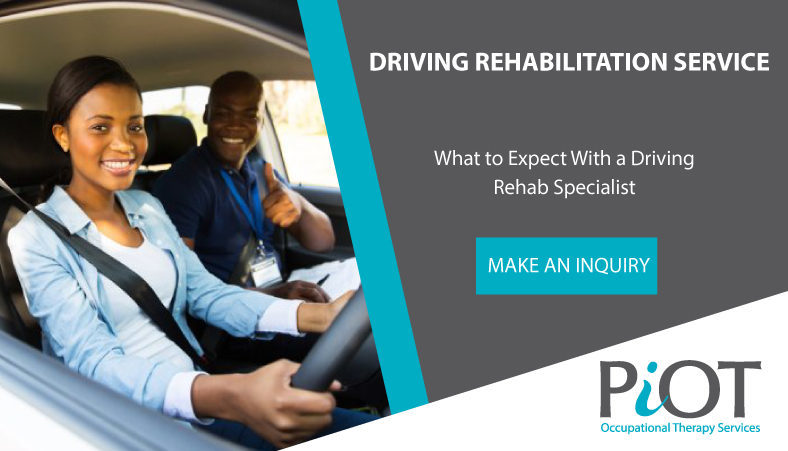
11 Apr Driving Rehabilitation – Getting You Back On The Road
After you have had a car accident, there are services and procedures in place to repair your vehicle and get it back in working order, and you are also being looked after for your medical recovery to return you to your best physical condition. An important area for recovery that you may not have considered is driving rehabilitation. That is, a rehabilitation programme designed to get you back on the road with confidence and the ability to drive safely.
Your accident not only affects you physically, but mentally as well. You may have become fearful of driving, afraid that you might get into another accident, causing you to be hypervigilant, drive too fast or too slow for traffic conditions, or avoid driving altogether. You may have become nervous in the car, and feel tense at the sound of a car horn, or when other vehicles are too close to you, or when driving on the highway. This can limit your driving in the community to essential trips only and cause you to become isolated, as you avoid trips to visit people and places that you normally would have before the accident. These feelings of discomfort can cause you to decrease your involvement in your community, possibly affecting your lifestyle, as you may no longer feel comfortable driving for work or pleasure.
Even if you were not involved as a driver, following your accident, you may benefit from rehabilitation as a pedestrian or a passenger. As a pedestrian, you may experience discomfort walking by the location where the accident occurred. Crossing the street may bring back some unpleasant memories of the accident. As a passenger, you may feel nervous sitting in the particular seat that you were in when the accident occurred. You may find that you are repeatedly berating the driver to drive more carefully, or notice that you are gripping the door handles tightly or pressing down on imaginary brakes. This program will benefit you to regain your sense of ease with riding in a vehicle or walking near traffic.
Depending on your injuries, you might require some special accommodations and adaptations to your vehicle to allow you to drive as you did before your accident. This could be anything from a support cushion behind your back, or additional mirrors to improve your range of vision to hand controls instead of pedals if you are no longer able to operate the conventional set up of your vehicle.
Terry Ginzberg is an Occupational Therapist specializing in Driving Rehabilitation. When you are ready, Terry, along with specifically trained certified driving instructors, will conduct assessments to determine your particular needs, and provide Cognitive Behavioural Therapy, in car defensive driving skills, and other effective strategies to manage your anxiety. You will be supported as you overcome your insecurities and once again become confident on the road.

